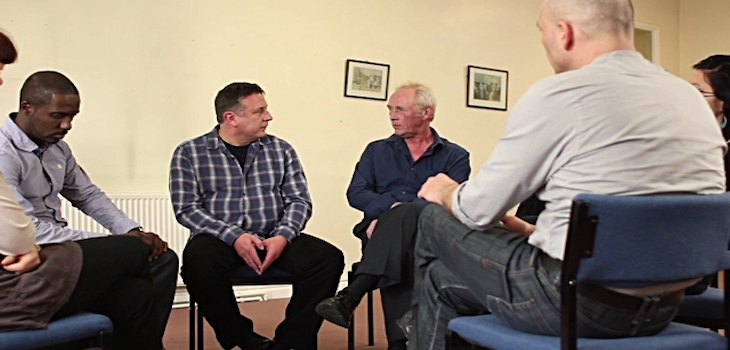You just inadvertently discovered that your husband has been having an affair. The text message, unintended for you, came through at an opportune time, just when you were checking the weather on his phone prior to departing for the mountain. Cloudy at best, his stream of emails from “Dan”, aka Danielle, as he had had it set up in his phone, were vivid descriptive remarks of their prior meetings events, nothing evident of the business meetings that he claimed he was at. As he stumbles out of the shower he is presented with the evidence, information he cannot dismiss. But really, what do you do with the news of infidelity besides expresses venom, rage, anger and of course the inevitable, hurt. Betrayal is the worst pain there is.
The exposure of one or a series of transgressions, delivered by accident and received like a tsunami, is painful. And when we receive an unforeseen event of which we don’t exactly celebrate, a crisis ensues.
Psychotherapists, when speaking of infidelity, often speak of healing from an affair. They talk about gratitude, making meaning of the relationship, helping someone understand their partner’s motivation in the context of his/her life and the marriage. This is all critical yet the initial impact is often minimized and the partner is told to stop, pause and listen. And while that is all good and makes sense, that does not typically define the reality.
The initial stage of reactivity is unavoidable unless of course, you are indifferent and just want him or her, the stressor, removed, gone, detached. And while the approach is to slow the process down, to set the stage for the second phase of affair recovery, it’s not always that easy. Yet we cannot really work while someone is in a state of arousal, as we know from the research on activation and arousal and our working brain.
Here are a few do’s and don’ts for the ‘cheater’ and the ‘partner’:
1. Do create distance
It’s OK. Anger is a distancing emotion; it serves to keep at the outskirts those by whom we were betrayed. If you are aroused, activated and unable to pull it together, have your partner leave for a short period with the intent to join together and assess and ideally work towards healing. This will help things slow down. Depending upon the circumstances, some time apart is not a bad thing.
“Best Friends”, an old movie, had a great line by Burt Reynolds depicting just this. Goldie Hawn, his soon to be wife, dropped her face in the chicken salad whilst at lunch with his mother, due to having taken a Xanax, a popular pill as it had just been introduced. While funny to us, it was not funny to Reynolds, who clearly felt betrayed. As Hawn tried to reach and comfort him with a ‘cracked egg’, he stopped, paused and looked up at her and said. .” I’m angry, and I’d like to stay that way for a while”. When hurt, we are not always ready to abandon our wall and resume the connection. In fact, we are often more expressive than Reynolds, rather stilted emotionally, to the point of flailing arms or screaming shouts.
2. Don’t make any irreversible decisions
While a short break fares useful, it is not advisable to do things that will change the course of your life, no matter how bad it is. These include filing for divorce, telling the kids (unless they have heard or will hear from a third party), putting a down-payment on a year’s lease or even changing the locks.
3. Do reach for professional help
Seek the help of a qualified therapist who specializes in couples work and infidelity, trauma and the like. Add to that a support group for betrayed partners. Take care in who you tell; things get around and the last thing you want is for those in your inner circle (typically your parents and children) to hear it from someone other than yourself.
4. Don’t contact the affair partner
There is no reason to reach out to the person with whom your partner had the affair. The exception-have him/her call that person together and let them know they are done and will be working on their relationship. That is if your intent is to work towards healing. You can do this together if you believe that will help.
5. Do set boundaries
While we cannot dictate anyone else’s behavior, we can define what does and does not work for us. So.. for now, secrets, further marital affairs, not stopping the affair, can all be laid out with consequences. These are things that don’t work for you. Physical violence, obscenities or whatever you, the receiver of the anger, deem inappropriate, you too can set this boundary. And while niceties are the preferred means of communication, I suggest you cut the betrayed some slack, particularly if this is not a regular occurrence. And don’t blame yourself but take ownership for your piece.
6. And yes, Do work on de-escalation on your own
There are tasks you can do to ground yourself, pause and stay focused yet still feel betrayed and angry. Acknowledge your lack of control over another while simultaneously embracing the lessons learned and opportunities for growth available. Meditation, yoga, and journaling may assist movement towards a simmer without dismissing your emotions.
7. A bonus . .DO be honest, be transparent (with guidance from a professional)
It’s out now, and even if you believe you have something to lose, healing is not an option sans transparency. Yet, be aware that it’s not just an exercise in dumping and what is sent is just as important as what is received. Staggered disclosure can be more harmful than helpful but it has to be done with care. Seek guidance on the disclosure process. A professional can help you structure your conversation toward transparency and growth.
A caveat: this does not apply to couples in which stepping outside of the coupleship is acceptable, has been agreed upon and is not a violation to the agreement.
Staying with your partner, once stigmatized, is no longer so. Seek help for yourself and your relationship.
See how I can be of help with infidelity and disclosure.






